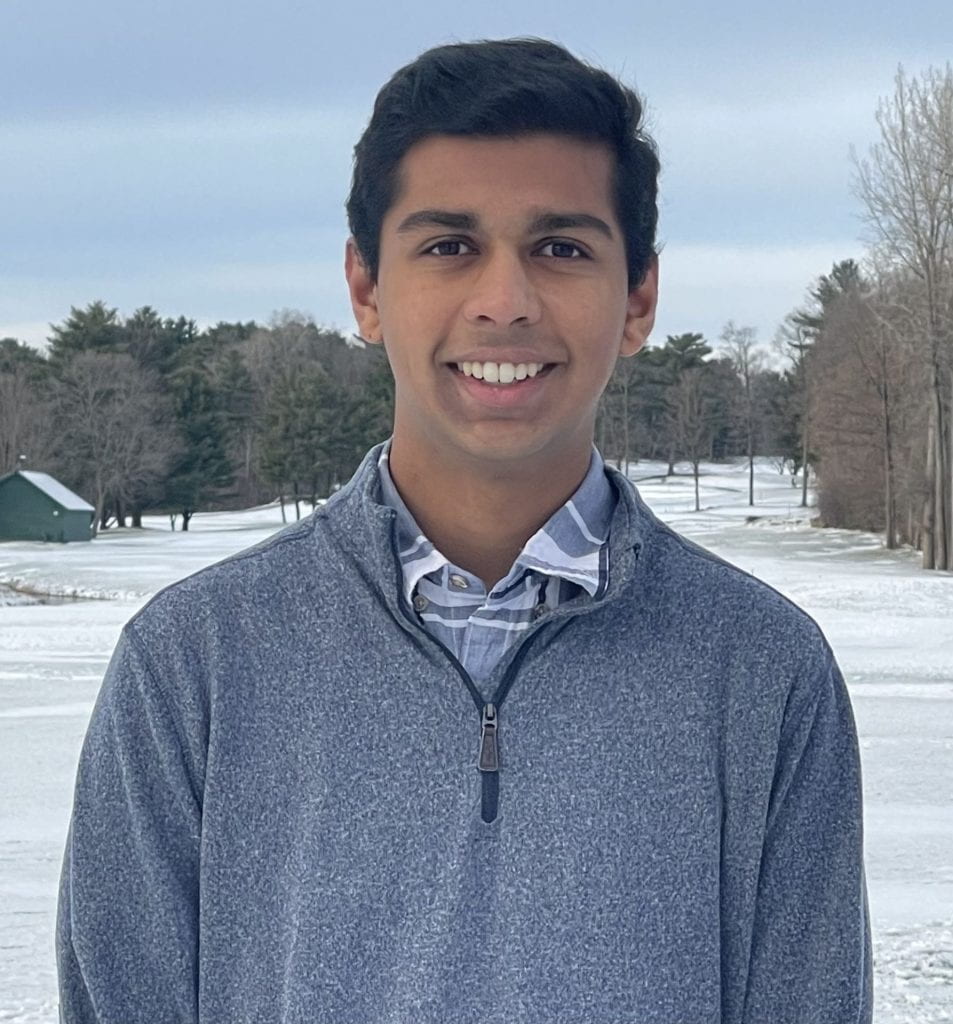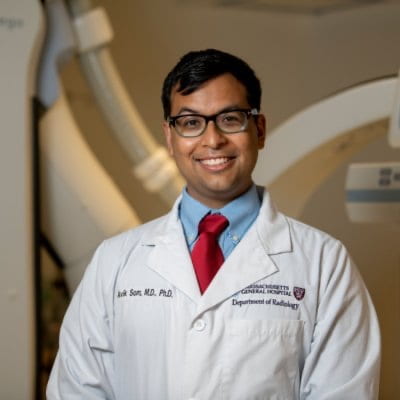Director

Professor Shriya Srinivasan, PhD
Postdoctoral Fellows

Jennifer Leestma
Jenny is a postdoctoral fellow in the BIONICs Lab. She received her B.S. in Biomedical Engineering from the University of Wisconsin-Madison as well as her M.S. in Mechanical Engineering and Ph.D. in Robotics from Georgia Tech. Her doctoral research focused on developing intelligent control methods for a robotic hip exoskeleton to augment balance during perturbed locomotion. In the BIONICs Lab, Jenny is interested in restoring and augmenting sensorimotor function using neurosurgical design and implantable mechatronic devices.

Arjun Bindu Sunil
Arjun is a postdoctoral fellow in the BIONICs Lab, where he explores bioelectronic interfaces and robotics to advance human–machine interaction. He earned his bachelor’s degree in Mechanical Engineering from Government Engineering College, Barton Hill, followed by an M.Tech (Research) and Ph.D. in Electronic Systems Engineering from the Indian Institute of Science, Bangalore. His doctoral research focused on developing an intraoperative probe for brain tumor margin delineation, integrating MEMS-based sensing and soft robotics to enhance surgical precision. At BIONICs, Arjun is excited to combine engineering and neuroscience to build next-generation assistive and diagnostic technologies.

Jae-Young Bae
Jae-Young received his B.S. in Biomedical Engineering from Yonsei University, and Ph.D. in Materials Science and Engineering from Seoul National University. His doctoral research focuses on the development of biologically compliant materials and fabrication methods for next-generation implantable devices.
Graduate Students

Maggie Chen
Maggie is a Ph.D. student in Bioengineering at Harvard SEAS. She received her bachelor’s in both Neuroscience and Computer Science from the University of Toronto. Her previous research spans across various topics, from epidural spinal cord stimulation to single-cell RNA sequencing. Maggie hopes to bring together research from the BIONICs lab and the Biodesign lab at Harvard to innovate the interface between technology and the human body, furthering research on biomechanics, movement, and sensorimotor control.

Mali Halac
Mali is a Ph.D. student in bioengineering at Harvard SEAS. He received his bachelor’s in electrical engineering from Drexel University, focusing on wireless electronics and digital signal processing. His previous research involves non-invasive brain-computer interface (BCI) design, machine learning methods for neural signal processing, and algorithm development for molecular biology applications. At BIONICs Lab, he designs peripheral nerve interfaces with the goal of establishing functional recovery.

Andrea Elizabeth Biju
Andrea is a Ph.D. student in Materials Science and Mechanical Engineering at Harvard SEAS. She received her bachelor’s and master’s in Aerospace Engineering from the Indian Institute of Technology Madras. Her previous research focuses on nonlinear dynamics and complex systems theory, which was developed to understand the occurrence of thermoacoustic instability in jet engines. Combining research from the Soft Math Lab and the BIONICs Lab at Harvard SEAS, Andrea hopes to bring an interdisciplinary approach to drive innovation in the theory of biomechanics and neural control.
Masters Students

Tala El Kaissi
Tala is a Master’s student in Neuro-X at EPFL. She has a background in Computer and Communication Engineering, along with minors in Mathematics and Bioengineering Design. Over the years, she has been involved in a variety of research projects—from assembling and characterizing electrodes to exploring sensory feedback, rehabilitation devices, and applying machine learning to biomedical imaging.

Nouchine Bouchiat
Nouchine is a Master’s student in Biomedical Engineering at EPFL. She earned her Bachelor’s degree in Life Sciences Engineering from EPFL in 2023, where she developed a comprehensive engineering background complemented by knowledge in cellular and molecular biology, chemistry, and programming. Her academic and research experience includes projects involving neural cell and organoid culture, as well as studies on the tumor microenvironment. She has also worked in industry in pharmacological research evaluating small molecules that induce mitophagy using in vitro assays. Nouchine is working at the BIONICs Lab, where she is expanding her expertise in implantable bioelectronics. She looks forward to learning more about the integration of biohybrid organs with neural interfaces, and use of implantable hardware for data acquisition and stimulation of the nervous system.

Louise He
Louise He is a master’s student in Engineering and Design at Harvard. She received her bachelor’s degrees in Computer Science, Psychology (Cognitive Track), and Digital Media from the University of Rochester. Her previous research involves integrating medical imaging reconstruction, generative modeling, and multisensory feedback systems to investigate how computational frameworks can support simulation, training, and interaction in virtual medical environments. At the BIONICs Lab, Louise is exploring the development of bio-integrated sensing and actuation systems, as well as soft medical robotic platforms, that interface with neural and physiological signals to advance human–machine integration for functional restoration and enhancement.
Undergrads





Collaborators

Lisa Gferer, MD, PhD
Lisa Gfrerer is Assistant Professor in Plastic and Reconstructive Surgery at Weill Cornell Medicine (WCM). She received her MD degree at the Medical School of Vienna prior to completing a PhD in Genetics at the Harvard Stem Cell Institute. She graduated from the Harvard Integrated Plastic Surgery Residency Program, and completed the Advanced Peripheral Nerve and Microsurgery at the Massachusetts General Hospital (MGH). Clinically, her focus is peripheral nerve surgery including headache surgery, breast reinnervation, as well as advanced nerve reconstruction for restoration of motor and sensory function after iatrogenic and accidental injury. She has built a multi- institutional research program for headache surgery, breast/chest reinnervation, as well as functional nerve disorders and nerve pain. As an affiliate of the Massachusetts Institute of Technology (MIT) she has further focused on innovation and device development to enhance peripheral nerve regeneration.

Avik Som, MD, PhD
Avik Som, MD, PhD is an interventional radiology resident at MGH specializing on the minimally invasive applications of biomaterials using image guidance. He helps lead the IR Device lab at MGH, irlab.mgh.harvard.edu, and works as a visiting scientist in the Langer/Traverso labs, as well as in the Mahmood/ Wehrenberg-Klee labs at MGH. He completed his MD/PhD at Washington University in St. Louis with Dr. Samuel Achilefu.

Joshua D. Bernstock, MD, PhD, MPH
Joshua is a resident physician (Neurosurgery) at Brigham and Women’s and Boston Children’s Hospitals who intends to specialize in in pediatric neurosurgical oncology. Joshua has diverse medical/surgical knowledge with unique expertise in the repositioning of approved drugs and the development/characterization of novel/experimental immunotherapeutics. Joshua works on basic and translational immunotherapy projects related to pediatric neuro-oncology and participated in the first-in-children trial of intratumoral oHSV (G207) in recurrent supratentorial malignant brain tumors (NCT02457845) and first-in-human trial of G207 in recurrent cerebellar tumors (NCT03911388).

Vlad Tereshenko, MD, PhD
Vlad is a postdoctoral research fellow in the Division of Plastic and Reconstructive Surgery at Massachusetts General Hospital. He graduated from the MD-PhD program at the Medical University of Vienna and the Clinical Laboratory for Bionic Extremity Reconstruction in Austria, where he focused his research on restoring sensory feedback in bionic reconstruction. Vlad has acquired diverse clinical and fundamental scientific expertise in peripheral nerve research, experimental microsurgery, and peripheral neural interfaces. Currently, he is engaged in biomedical and translational projects related to identifying the nociceptive origin of occipital neuralgia and painful neuroma. As an affiliated researcher at the Massachusetts Institute of Technology (MIT) and the Harvard John A. Paulson School of Engineering and Applied Sciences, he continues his pursuit of restoring sensory and proprioceptive feedback in bionic hands. He also works on device development to optimize peripheral nerve surgery.

Braden Kuo, MD
Dr. Braden Kuo is Director for the Center for Neurointestinal Health at the GI Unit at Massachusetts General Hospital and Associate Professor of Medicine at Harvard Medical School. He is active clinically seeing patients and training the next generation of GI Brain Gut clinicians and researchers in the Advanced GI Motility Fellowship. He has led numerous multicenter clinical trials in gastroparesis and diagnostic device evaluation for measuring GI transit. He has received funded from the American Gastroenterology Association as well as from the NIH and philanthropy. He has also authored over 120 publications including numerous book chapters, primary investigation and the recent ACG guidelines for Gastroparesis from the American College of Gastroenterology and served editor for the most recent textbook in Gastroparesis.

Shen Ning, MD, PhD
Shen is a Diagnostic/Interventional Radiology resident at Massachusetts General Hospital (MGH) interested in developing minimally invasive technologies to tackle clinical unmet needs. She holds a MD/PhD from Boston University School of Medicine and conducted her PhD work at the Genetics and Aging Research Unit at MGH under the guidance of Drs. Rudolph Tanzi and Doo Yeon Kim. She is the co-founder of the non-profit podcast, Science Rehashed, and a bioelectronic startup, INIA Biosciences. She was previously awarded the NRSA (F30) Fellowship, the BUnano Cross Disciplinary Fellowship, and a Fulbright Research Fellowship to pursue work on multi-functional biomedical microrobots at ETH Zurich.

Ben Johnston, MD, PhD
Ben is a neurosurgery resident at Brigham & Women’s Hospital. Ben’s doctoral work was on regeneration across long-gap peripheral nerve injuries and neuroma pain. He has completed sub-specialty training in peripheral nerve surgery at MGH and spine surgery at BWH.

Shams I. Iqbal, MBBS
Shams I. Iqbal, MBBS, is an interventional radiologist at Mass General specializing in advanced image-guided therapies, including minimally invasive procedures for oncology and vascular conditions. His expertise spans embolization techniques, radiofrequency ablation, and tumor management via TACE and Y90 radioembolization. His research interests include device development in collaboration with the Biotroinc lab at Harvard. As part of the Weissleder lab at the center of systems biology, he is leading search for early diagnosis of cancer focusing on cholangiocarcinoma using nano technology and EV.As part of Samir lab at MGH, he is working on Ultrasound contrast media for detection of bleeding, in collaboration with Lincoln Lab.Dr. Iqbal completed his medical degree at Jawaharlal Nehru Medical College and completed higher training at Massachusetts General hospital and is double board certified in Interventional Radiology and Body imaging.